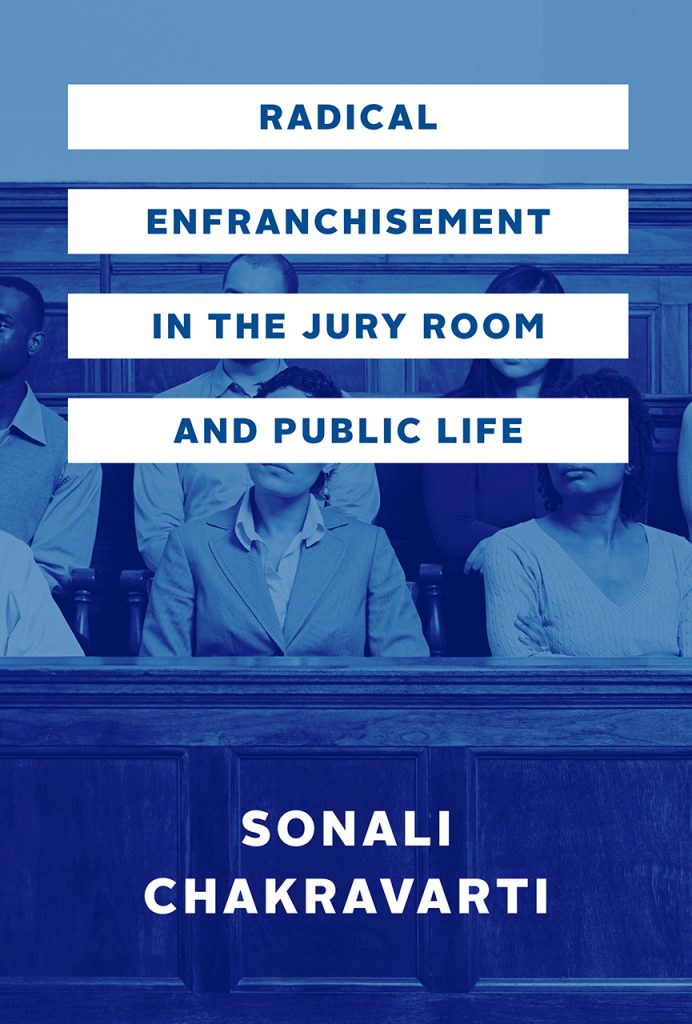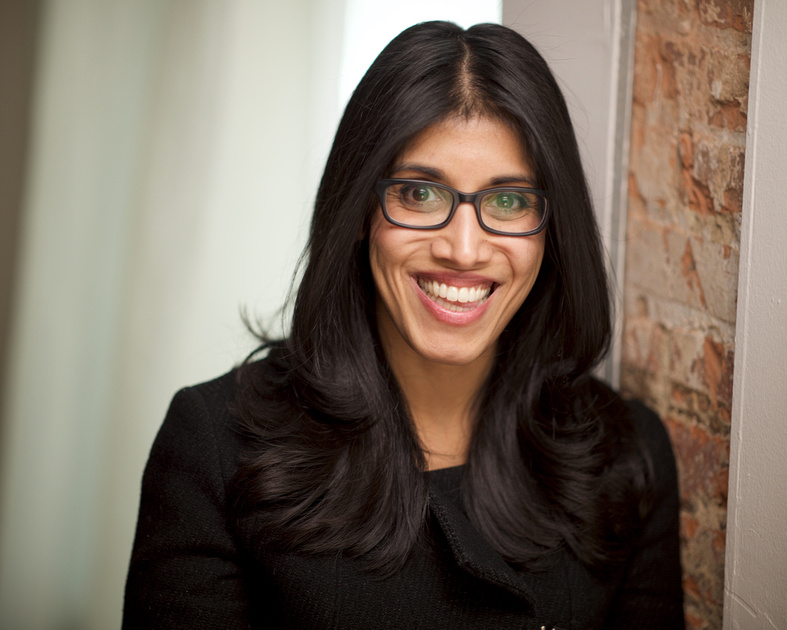5 Questions for Sonali Chakravarti, author of “Radical Enfranchisement in the Jury Room and Public Life”
Summoned for jury duty? In her new book, Radical Enfranchisement in the Jury Room and Public Life, Sonali Chakravarti seeks to change the way Americans think about their participation in the judicial process, arguing that juries as an institution provide an important site for democratic action by citizens. We sent Chakravarti a few questions recently to learn more about her motivations for writing the book.

First, for those who haven’t yet encountered the book, could you describe the key problems you saw with the process of jury duty in the United States that led you to write about this?
In the 2018 film Can you Ever Forgive Me?, Melissa McCarthy plays author Lee Heller, a biographer who has fallen on hard times. To make ends meet, she begins forging letters of literary luminaries such as Noel Coward and Dorothy Parker. She has a good run but is eventually arrested for fraud, found guilty, and sentenced to house arrest. The film ends with a quip about how when she is called for jury duty she responds, “I’m a convicted felon and am therefore unable to serve. Who said crime doesn’t pay?” The fact that evading jury duty can be the basis of a reliable punchline is part of why I wrote this book. Serving as a juror is the most politically and legally powerful role many of us will ever have. We are given the responsibility to make sure that the enforcement of the law is consistent with our democratic ideals and many of us don’t take up the challenge. Especially given the political climate we live in, it doesn’t make sense to avoid jury duty or to make fun of it as only a burdensome task.
In thinking about a solution, you coined the term “radical enfranchisement,” civic education to make it clear to people that jury duty is a hidden form of democratic power that gives often otherwise underrepresented people the power to enact change. Can you give an example of what this might look like?
Radical enfranchisement refers to the civic education that should happen before and during a jury trial. Before a trial, we as prospective jurors should understand the reasons the Constitution protects the right of a defendant to receive a jury trial—including to check the power of the state and to be judged by people who are not connected to the apparatus of the court. During a trial, radical enfranchisement demands a grappling with one’s own biases, including implicit biases, to the best extent possible in order to facilitate a fair trial. I give examples of what this looks like in the book.
Should we worry that the development of radically enfranchised jurors might affect the selection process? If so, are there safeguards we might use to mitigate against potential bias during jury selection?
Radically enfranchising jurors is not about subverting the jury system for a particular political ideal or outcome; It is meant to allow the system, as it stands, to work in a more democratic way. That said, the most controversial suggestion in the book is about publicizing the power of the jury to find a defendant not guilty, regardless of the evidence (also known as jury nullification). This is a power that can be abused but my book discusses why nullification is critical to the integrity of the jury system and why secrecy about it is not the best approach. Greater discussion before jury duty about why and when nullification is appropriate treats potential jurors as citizens capable of making good judgments, even in difficult cases.
It’s been argued that the harsh standards of punishment in the American criminal justice system, including high rates of incarceration and continued use of the death penalty, are the result of an emphasis on proceduralism as the preferred form of decision-making. How do juries as spaces of radical enfranchisement form a critique of the idea that legitimacy is determined by whether the proper steps were followed rather than a substantive assessment of the final decision?
Recent work on proceduralism and the false sense of the “racial innocence” of procedural legal mechanisms informed my research. The jury system reflects the deeper racial biases of the criminal justice system in many ways, including the way jurors are selected (from DMV and voter registration lists in forty-nine states) and the imperfect process of challenging the dismissals of jurors based on race (though Batson hearings). Even the fact that a few states have allowed non-unanimous verdicts in criminal cases stems from a desire to silence the perspectives of non-white jurors. At the same time, the jury process is different from other forms of proceduralism because ordinary people really do have final decision-making power. This can be abused when jurors act on prejudice, but it can also be a forward-looking institution where citizens take responsibility for balancing mercy and punishment in a way that is appropriate for the case.
Finally, can you give some examples of programs modeling the kind of civic education you discuss? Where should the average citizen wanting to become more educated about the responsibilities of a juror go—after they’ve finished reading the book, of course?
Many of us get our civic education from comedy news shows, like that of John Oliver and Hasan Minhaj, and my hope is that they will pick up this issue. More formally, I think juror education should happen at schools, colleges, and community organizations, such as libraries. These would be one-hour workshops that focus on the selection process and the benefits of diverse juries for defendants and for the democratic process. Moreover, the skills of judgment and self-scrutiny that citizens develop through jury trial can be carried over to other aspects of civic life. Potential jurors would also better understand the responsibilities they have to themselves and their communities when they are asked to serve. Participants in the workshop would be able to ask questions in a way that is not encouraged during jury duty.

Sonali Chakravarti is associate professor of government at Wesleyan University.
Radical Enfranchisement in the Jury Room and Public Life is available now on our website and your local bookseller.